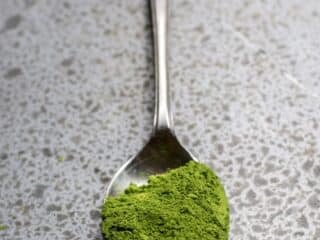
television shows to come to a happy conclusion within a half an hour or an hour’s time.
We like to overindulge in sweet foods, despite the obvious health issues that come along
with that. And we go to fairs to ride a roller coaster – simulating a thrill we expect is
eluding us in other facets of our lives.
Paradoxically, we like instant gratification so much that many people turn to drugs and
alcohol to magically erase pain in their lives. For a few dollars and a small investment in
time, pain – an old psychological wound or current problem requiring action – can
instantly vanish with the right recreational drug or drink.
The paradox is that we also tend to think there is an instant way out of addiction. Turning
to drugs and drink comes with lifelong dangers. An addiction, it is widely acknowledged, is
a lifelong problem. The difficulty of remaining clean and sober certainly lessens with time,
but the vigilance over one’s tendency to relapse never goes away. So, why is it that many
people believe that a 30 day stay in an addiction treatment center is a quick and easy
road to recovery?
Certainly, an addict seeking one sliver of hope that they can use their substance of choice
– just once or just a taste – every once in a while and remain safe is a mistake all too
many people make.
But the price paid for a relapse is medically remarkable. Alcoholics, for example, can be
on the wagon for decades and then pick up a drink in a moment of relapse. Relatives,
friends and the the alcoholics, as well, are then surprised by the point that within two or
three days, the addiction is back upon them full force – as if they had never even quit at
all.
It may take 15 or 20 years before someone realizes and addiction requires complete
sobriety. But it does not take 15 or 20 years to rebuild the addiction. Very quickly, addicts
return to the advanced stage of addiction that they were in when the first began recovery.
This tells us a few things. First: There is no complete “cure” and the word “cure” is a hot
potato among addicts, who prefer the word “recovery,” to describe a clean and sober
lifestyle. While a “recovery” can be pretty solid, a “cure,” it is universally acknowledged,
does not exist.
Second, therapists, addiction counselors of every stripe, doctors and social workers have
reason to tell addicts that treatment is not a shortterm deal. It is not 28 days of sobriety
and a week of therapy. It is much more than that.
Ironically, the first jolt of sobriety tends to come with a a grand feeling of accomplishment.
This is a false summit. It feels great, but every day is a test for an addict and feeling great
often fools addicts in to believing they are strong enough to indulge again.
This same problem hits people trying to lose weight. The most obvious reward for a dieter
is to go off the diet and sit down to have a bowl of ice cream. But this is a very unfortunate
choice of reward, because it soon leads to a total breakdown of diet discipline.
There is also a widely known phenomenon known as being a “dry drunk,” which describes
someone with addiction issues who becomes sober, but does not address the underlying
issues that contributed to their addiction. (The term comes from alcoholism, but it can be
easily applied to other addictions.)
By not addressing problems that helped create the addiction, the risk of relapse is far
greater. Many people also pride themselves in remaining clean and sober, but simply
switch addiction to another substance. Not drinking for a year is terrific, but not so terrific
if you find yourself suddenly addicted to pills.
Dry drunks also tend to remain angry, depressed, moody and unpredictable as they were
when they were drinking (or using drugs) but now their behavior is all the more erratic and
out of control. From a behavioral point of view, dry drunks are a train wreck. They make
the same selfdestructive decisions as they always did. They are abusive to loved ones,
who find that their family member, although clean and sober, now seem to be cursed with
a new form of tyrannical madness.
Some addicts are told, “We liked you better as a drunk,” or “as an addict.” This tells you
the recovery requires a fullcourt press. According to this Therapists’ guide from Michael’s
House, “Addiction is an unusual specialty with a unique set of demands in that many
addicted people are just not encouraged to seek medical services.”
“The Therapist’s Guide To Addiction Medicine” espouses a multidisciplinary approach to
addiction recovery.
In short, addictions are frequently about cycles – a certain trigger – depression, family
issues, low self esteem, physical pain, etc – pushes an addict into seeking and instant
solution to their problem. Eventually, the addiction itself is the central problem in that
person’s life. That person now has all the original problems plus a lifelong struggle with
addiction to face. Tackling this at just a single point of success is generally not enough.
Treatment has to be allencompassing or holistic in order to have the maximum chance of
success.







1 comment